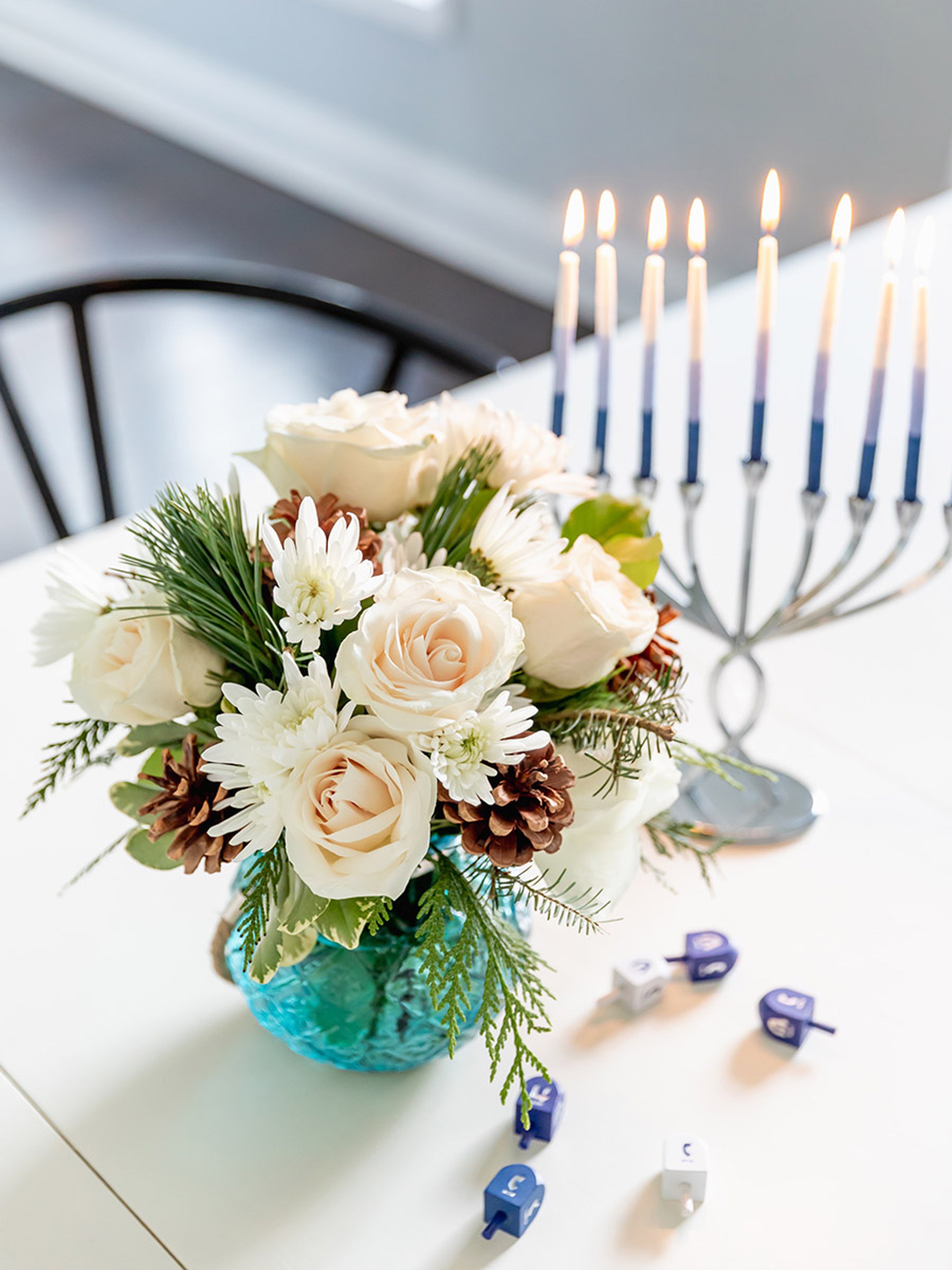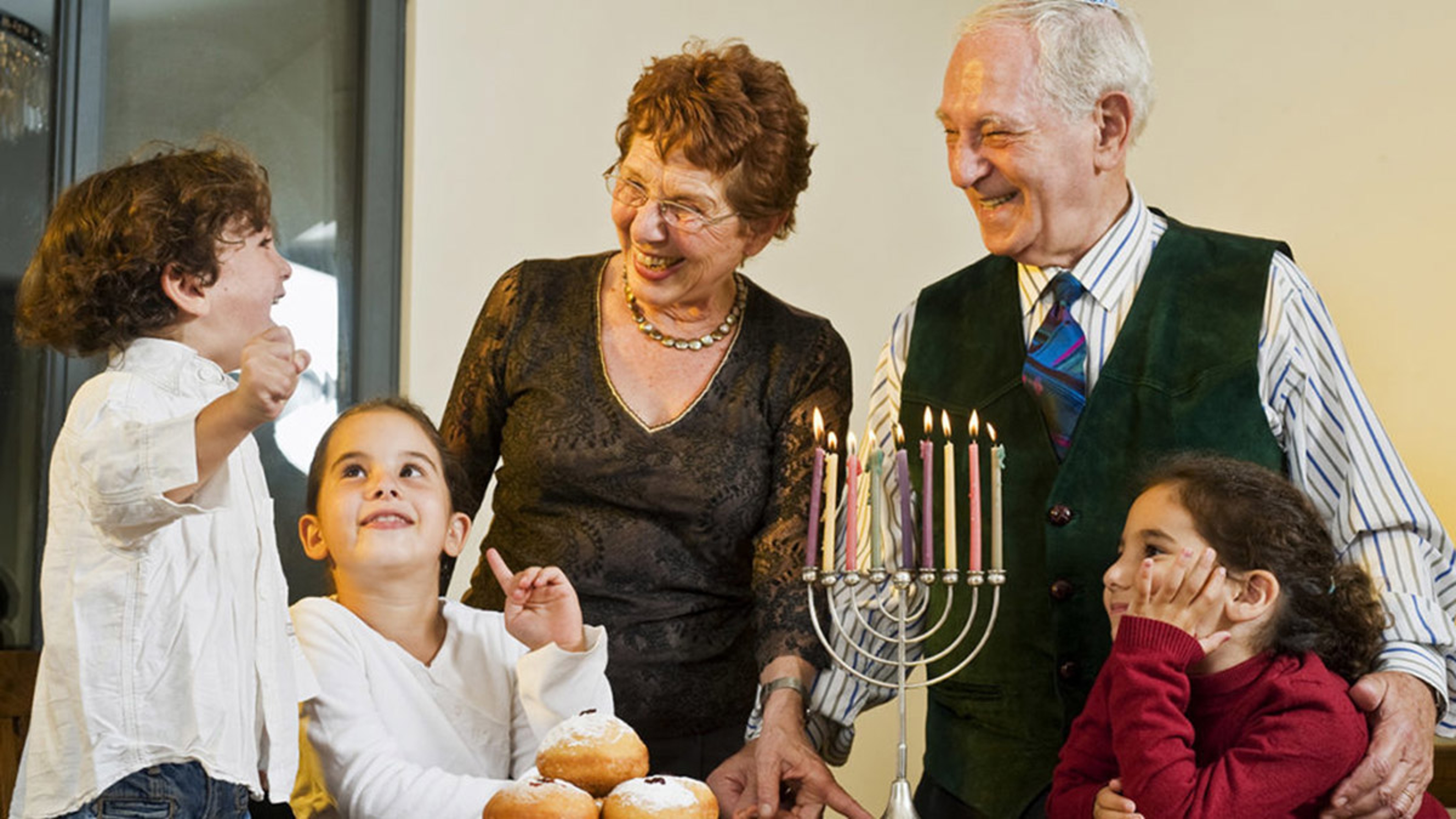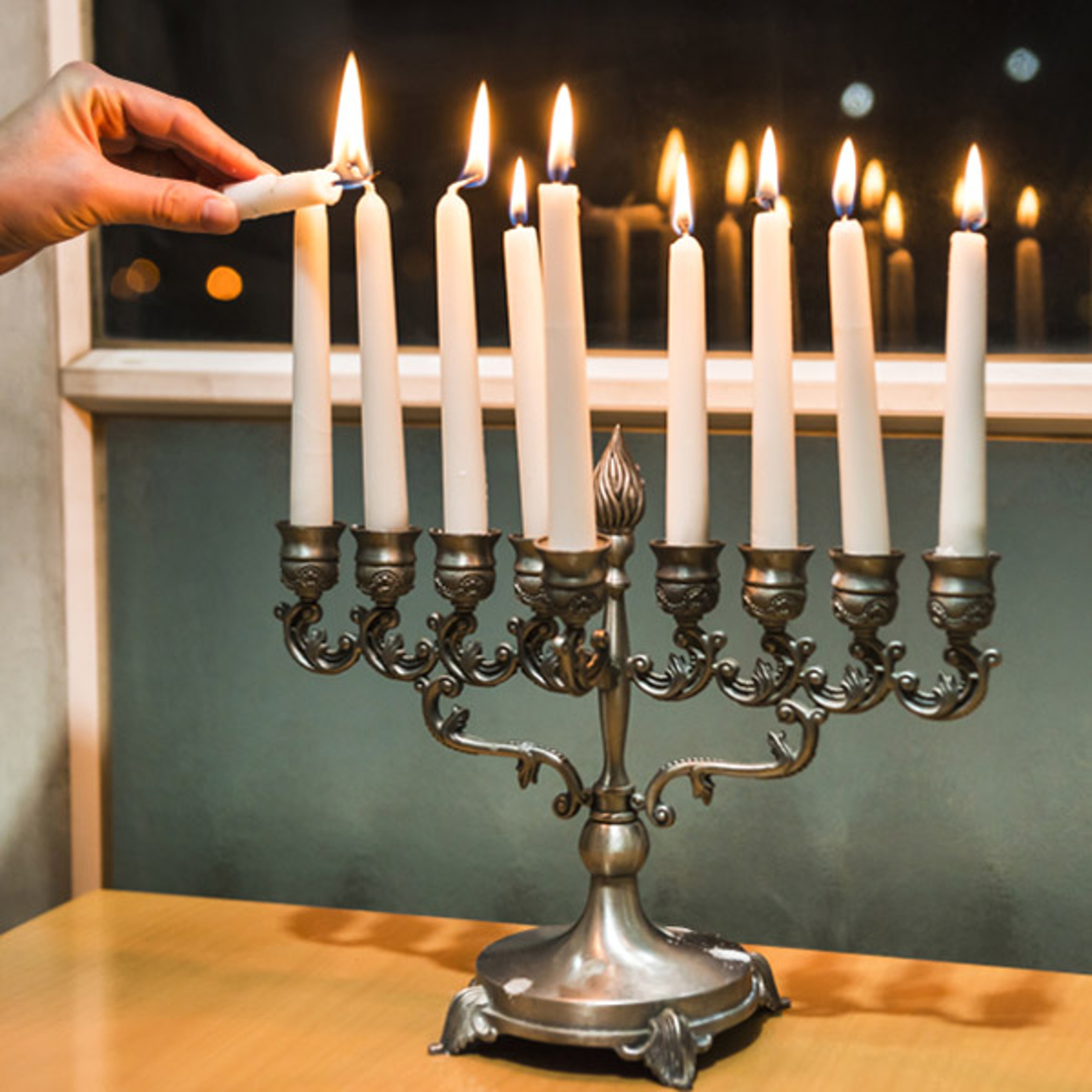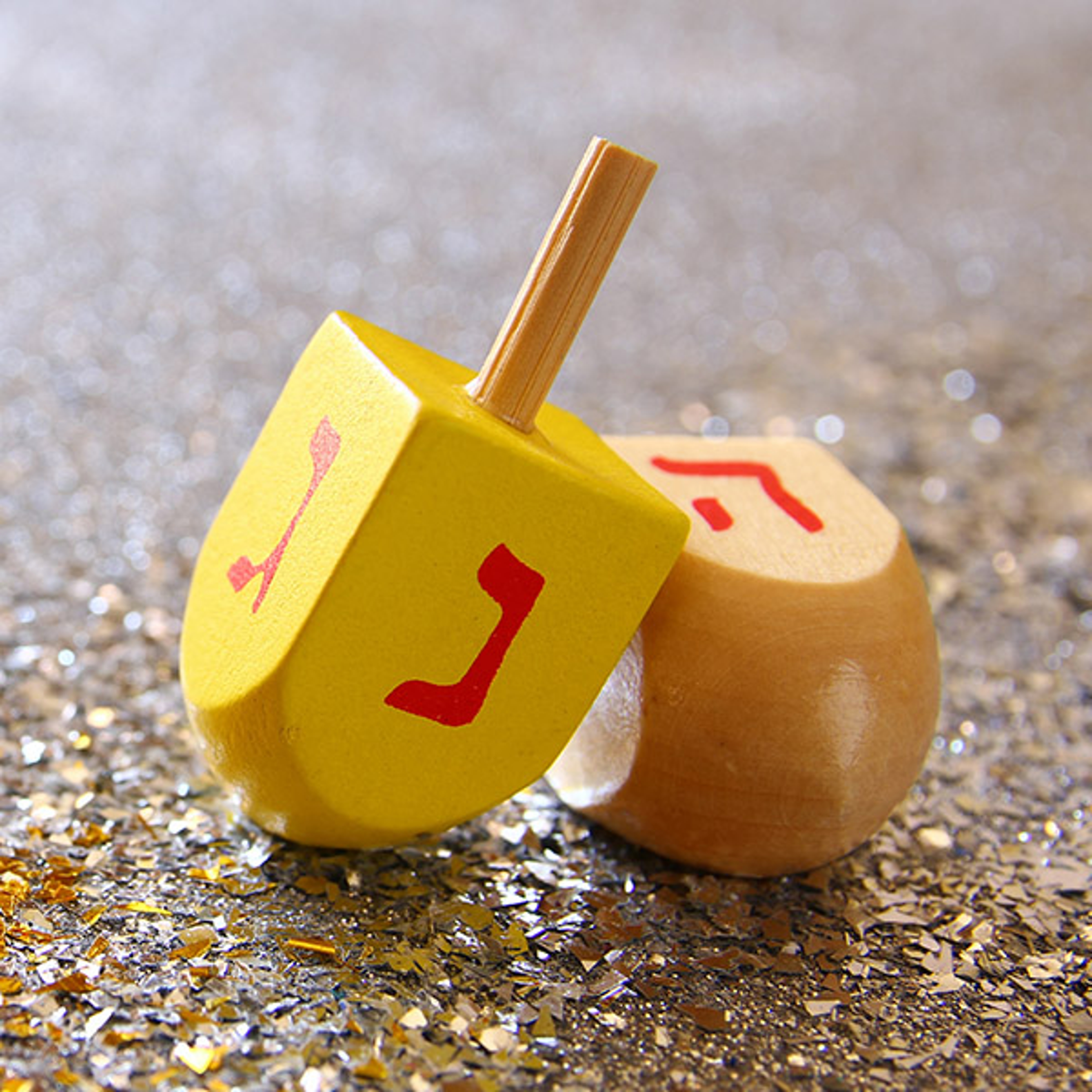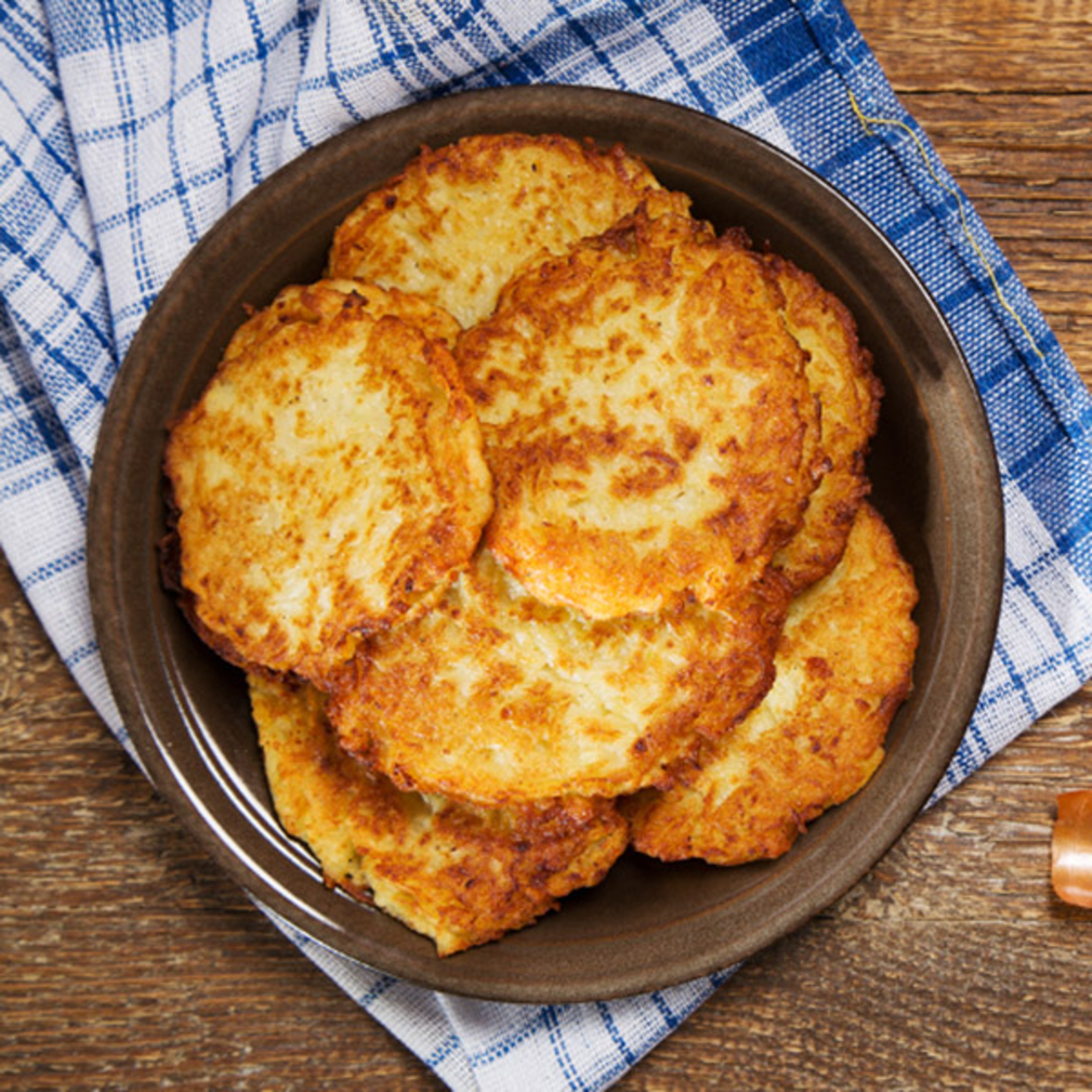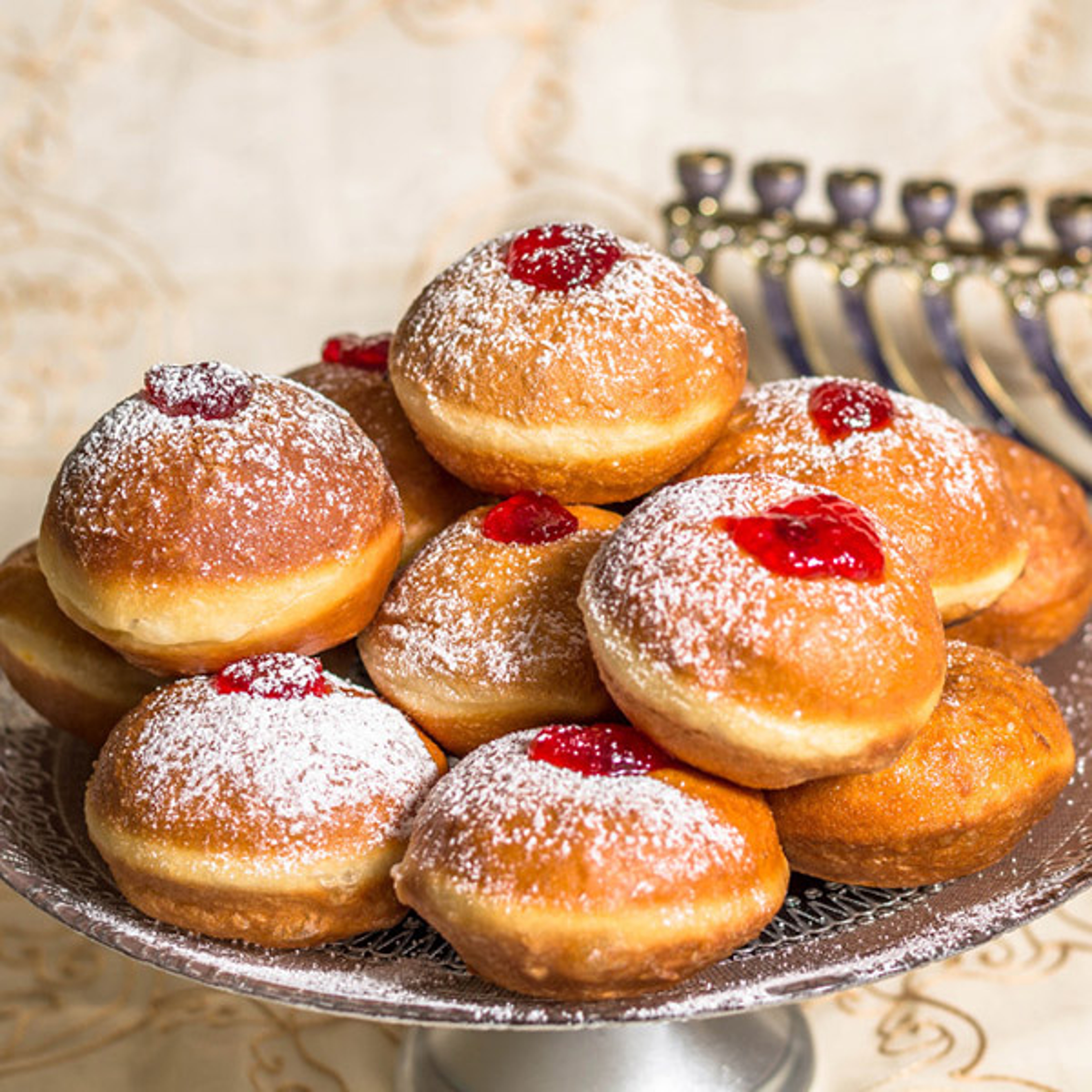Get your menorahs and dreidels ready: Hanukkah is approaching.
Actually, maybe it's not. There's a chance that when you read this, Hanukkah has already passed. Or that you're in the middle of the holiday. Or it's still several weeks away.
The dates on which the Festival of Lights fall actually vary widely from year to year. (We'll explain more about that later.) For now, let's learn about this wondrous Jewish holiday and the many traditions associated with it.
What is Hanukkah?
Hanukkah (also sometimes spelled "Chanukah") is an eight-day religious holiday observed by people of the Jewish faith. Each year around December, Jews celebrate the Festival of Lights, which commemorates their ancestors' victory over their tyrannical rulers more than 2,000 years ago.
The history of Hanukkah
The events that inspired the holiday we know as Hanukkah occurred in the second century B.C., when the ruler of Judea (what's now known as Israel), Antiochus IV Epiphanes, outlawed Judaism and forced Jews to worship Greek gods. In 168 B.C, Antiochus and his army led a massacre on Jerusalem. Thousands of people died, and the city's holy Second Temple was desecrated with a statue of Zeus and the sacrificing of pigs within its sacred walls.
A large revolt led by a Jewish priest named Mattathias and his five sons helped the Jewish people reclaim their freedom. The insurrectionists cleansed the Second Temple and rebuilt the altar. They placed a menorah on the altar, and even though they had enough oil to last only one night, the candles stayed lit for eight. This miracle inspired the tradition of Hanukkah and the lighting of the menorah during the eight-day celebration.
Hanukkah traditions
Some popular Hanukkah customs include lighting the menorah, playing the dreidel game, preparing traditional foods like potato latkes and sufganiyot (jelly doughnuts), and singing time-honored Hanukkah songs.
The menorah
The menorah
See More: During Hanukkah, Jews light menorahs for eight days to commemorate each night the original lamp burned. A menorah holds nine candles, one for each night and one in the center (called the "shamash"), which is used to light the others. (If you want to be technical about it, the term "menorah" refers to the seven-pronged candleholder that was found in the ancient holy temple in Jerusalem; "hanukkiah" is the proper term for what most people call a menorah.) Each evening, families gather at nightfall to rekindle menorah flames, rededicate themselves to their faith, and share in the festive meals. They also sing blessings as they light the candles.
See More: During Hanukkah, Jews light menorahs for eight days to commemorate each night the original lamp burned. A menorah holds nine candles, one for each night and one in the center (called the "shamash"), which is used to light the others. (If you want to be technical about it, the term "menorah" refers to the seven-pronged candleholder that was found in the ancient holy temple in Jerusalem; "hanukkiah" is the proper term for what most people call a menorah.) Each evening, families gather at nightfall to rekindle menorah flames, rededicate themselves to their faith, and share in the festive meals. They also sing blessings as they light the candles.
The dreidel
The dreidel
See More: The dreidel is a four-sided spinning top with a different Hebrew letter inscribed on each side. The letters — Nun, Gimmel, Hay, and Shin — stand for the phrase "Nes gadol haya sham," which translates to “A Great Miracle Happened There.” (In Israel, dreidels have the letter Peh instead of Shin, which changes the translation to "A Great Miracle Happened Here.")
During the dreidel game, each player receives a given number of coins or candy pieces. (Gelt, or chocolate "coins" wrapped in gold foil, is traditionally used as currency.) Before spinning, each player puts a fixed amount into the “kupah,” or kitty. Each player in turn spins the dreidel, which will fall on one of the four letters. Depending on the letter, one of the following will happen:
- Nun = Take nothing
- Gimmel = Take all
- Hay = Take half
- Shin = Add one
The game continues until players have run out of "funds" and one is declared the winner.
See More: The dreidel is a four-sided spinning top with a different Hebrew letter inscribed on each side. The letters — Nun, Gimmel, Hay, and Shin — stand for the phrase "Nes gadol haya sham," which translates to “A Great Miracle Happened There.” (In Israel, dreidels have the letter Peh instead of Shin, which changes the translation to "A Great Miracle Happened Here.")
During the dreidel game, each player receives a given number of coins or candy pieces. (Gelt, or chocolate "coins" wrapped in gold foil, is traditionally used as currency.) Before spinning, each player puts a fixed amount into the “kupah,” or kitty. Each player in turn spins the dreidel, which will fall on one of the four letters. Depending on the letter, one of the following will happen:
- Nun = Take nothing
- Gimmel = Take all
- Hay = Take half
- Shin = Add one
The game continues until players have run out of "funds" and one is declared the winner.
The latkes
The latkes
See More: The most popular theme throughout the preparing of Hanukkah dishes is the use of oil — a tribute to the oil that kept the menorah burning in the ancient temple — and the most popular dish to make are latkes. Latkes are potato pancakes made from grated potatoes mixed with eggs, onions, and flour, and fried in vegetable oil. The texture is crispy on the outside and tender on the inside. These delightful treats of the season are served hot and often dipped in applesauce or sour cream.
See More: The most popular theme throughout the preparing of Hanukkah dishes is the use of oil — a tribute to the oil that kept the menorah burning in the ancient temple — and the most popular dish to make are latkes. Latkes are potato pancakes made from grated potatoes mixed with eggs, onions, and flour, and fried in vegetable oil. The texture is crispy on the outside and tender on the inside. These delightful treats of the season are served hot and often dipped in applesauce or sour cream.
The sufganiyots
The sufganiyots
See More: These jelly-filled donuts come from the Greek word sufan, which means “fried” or “spongey.” The concept of the donut dates back to the 15th century, but it wasn't until the 16th century that Polish Jews started adding jelly to the donuts that they ate on Hanukkah. The popularity of this food really took off, though, in the 1920s, when the Israeli labor foundation made a strong push to make jelly donuts the Hanukkah treat of choice within the country. Sufganiyot go by many other names, including Berliners in Germany, bismarcks in parts of the U.S. and Canada, and ponchiks in Poland.
See More: These jelly-filled donuts come from the Greek word sufan, which means “fried” or “spongey.” The concept of the donut dates back to the 15th century, but it wasn't until the 16th century that Polish Jews started adding jelly to the donuts that they ate on Hanukkah. The popularity of this food really took off, though, in the 1920s, when the Israeli labor foundation made a strong push to make jelly donuts the Hanukkah treat of choice within the country. Sufganiyot go by many other names, including Berliners in Germany, bismarcks in parts of the U.S. and Canada, and ponchiks in Poland.
Singing songs
Music is an important part of Hanukkah. In addition to the blessings Jews say each night, they sing songs over the course of the eight-day-long celebration. Some of the most popular ones are "Hanukkah Oh Hanukkah," "I Have a Little Dreidel" (aka "The Dreidel Song" aka "Dreidel Dreidel Dreidel"), "Ma'oz Tzur (Rock of Ages)," and "Sevivon Sov Sov Sov." A more recent addition to the canon is Adam Sandler's uproarious "Hanukkah Song," and all its many versions.
When is Hanukkah?
According to the Hebrew calendar, the holiday always begins on the 25th day of Kislev, which can occur any time between November and December. If you're not going by the Hebrew calendar (which most of us aren't), it can be tough to know when Hanukkah falls.
That's because the Hebrew calendar is a lunisolar calendar, meaning it is based on both the sun and moon. The Gregorian calendar — the one most of us use — is a solar calendar. A lunar year is shorter than a solar year, usually about 354 days, and since these two calendars don't line up, a holiday that falls on the same date every year on one calendar, such as Hanukkah, will fall on a different day each year on the other.
To show how much the dates of Hanukkah can differ from year to year, in 2022 the holiday started on Dec. 18 and ended Dec. 26. In 2023, the first day of Hanukkah is Dec. 7. and the last is Jan. 15. The Festival Lights will run from Dec. 25 to Jan. 2 of 2024. Eight crazy nights, indeed!
|
Hanukkah Begins: December 4th | Hanukkah Begins: December 24th | Hanukkah Begins: December 12th |
Hanukkah Ends: December 12th | Hanukkah Ends: January 1st | Hanukkah Ends: December 20th |
Hanukkah gifts
The most popular Hanukkah flowers to send are white lilies, white roses and carnations, and blue delphinium. Deliver eight days of smiles with items from our Hanukkah collection, which includes everything from flowers and plants to cookies and menorahs.
Wonderful Wishes Bouquet™
Spirit of Hanukkah Menorah Personalized Apron & Potholder
